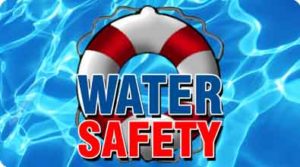 We all know the “typical” pool rules: no swimming without a grown-up, no running around the pool, and no diving in the shallow end. But here are some more pool rules to keep in mind this summer:
We all know the “typical” pool rules: no swimming without a grown-up, no running around the pool, and no diving in the shallow end. But here are some more pool rules to keep in mind this summer:
- How well does your child swim? Pool safety starts before your child ever gets into the water and understanding your child’s skill level can help you make smart decisions about water safety. If your child is not a strong swimmer, enroll him or her in swim classes. Learning the rules of the water and how to be a strong swimmer is a great defense against drowning.
- Active supervision around a pool is required, not just recommended. Never leave a child alone in or around the water. Any time children are in the pool, designate an adult to be the Water Watcher. This dedicated observer must commit to actively supervising children in the water at all times; not texting, reading, socializing, drinking, etc. Touch supervision is essential for young children and those who can’t swim. Plus, it’s a good idea to switch out Water Watchers from time to time to make sure the children stay safe in the pool.
- If you see a child struggling in the water at a pool or lake, don’t jump in to the rescue. More often than not, the panicking victim will pull the would-be rescuer down with them. Instead, throw out a floatation device or use a pole or noodle to reach the drowning person.
Protecting your family around the pool means more than just keeping an eye on swimming kids. It is also important to make sure the pool is a safe place when no one is around. Layers of protection, like a non-climbable fence with a self-locking gate, can keep children who wander off from falling into the pool.
- Our experts recommend you skip the standard arm floaties and instead use a U.S. Coast Guard approved personal flotation device (PFD) for all children who do not know how to swim, and remember to put them back on if they are taken off for any reason.
- Fences should be slatted and at least four feet tall. Even young kids can climb a chain-link fence. Gates should be self-closing and latching with latches out of reach of tiny hands.
- Alarms can be installed on doors and gates leading to the pool and underwater pool alarms can warn you if something hits the water.
- Always keep rescue equipment, like pool noodles, safety rings, rope and a first aid kit, poolside. Plus always keep access to a phone nearby.
- Cover pools and hot tubs when not in use. Use rigid covers that don’t collect standing water.
- Remove ladders from above ground pools when not in use and store them out of reach.
-Sarah Caudle, PA-C



